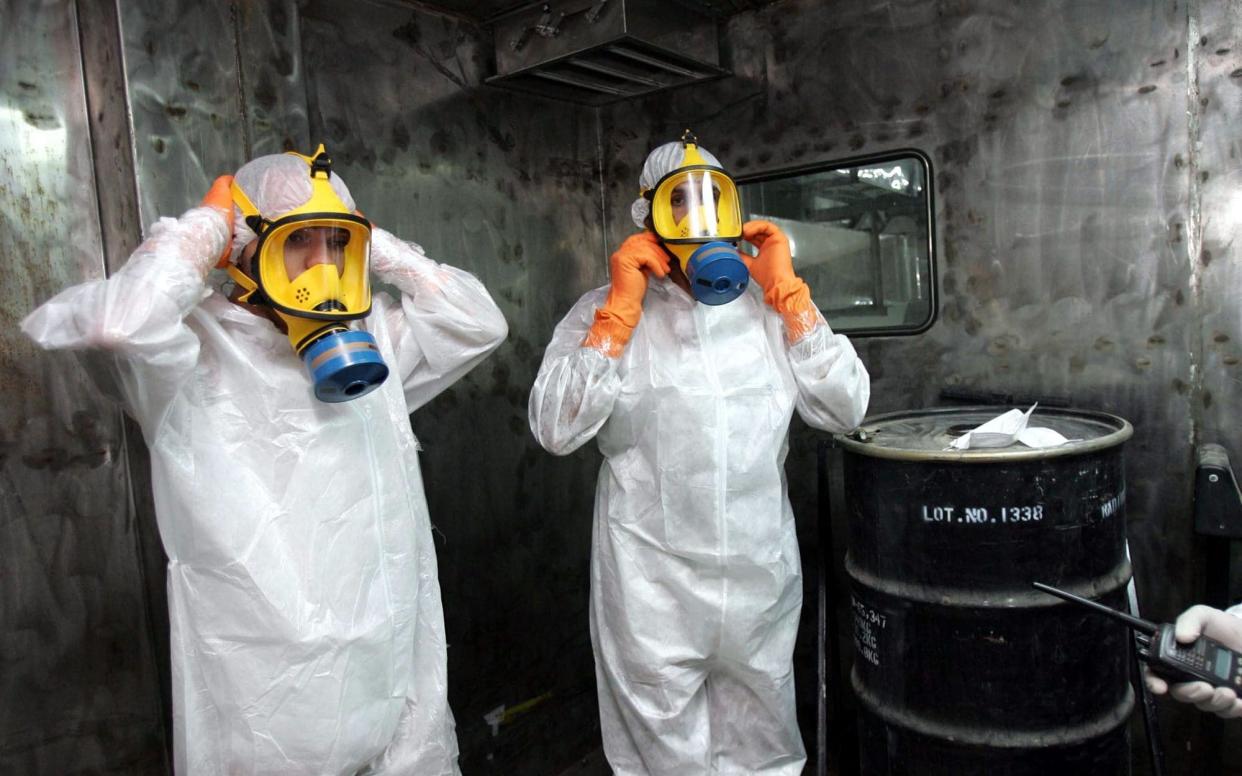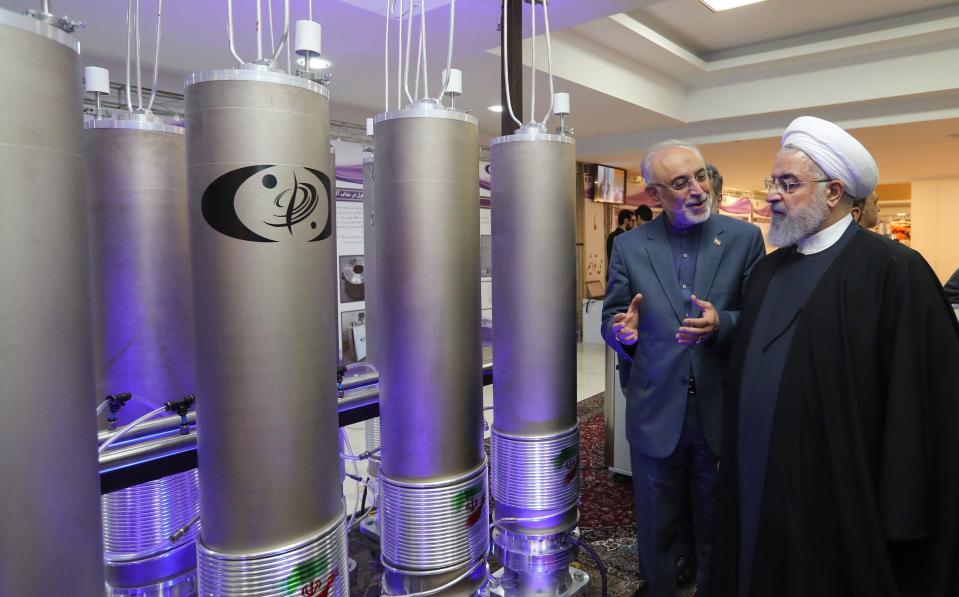Iran shuts nuclear facilities and cancels inspections amid fears of Israeli attack

Iran closed down its nuclear facilities amid fears of an Israeli attack, the United Nations has revealed.
Inspectors were blocked from the sites on Sunday, Rafael Grossi, the UN’s International Atomic Energy Agency chief, said.
The shutdown came as Israel’s war cabinet was locked in talks over how to respond to Iran’s first direct attack on its territory.
Experts have warned Iran is on the “threshold” of becoming a nuclear power and could build a bomb in six months to a year. Uranium enrichment is accelerating as the regime faces calls to create a deterrent.
There is limited evidence the Islamic Republic wants to create a nuclear bomb, and Israel is not understood to be preparing an imminent attack on nuclear facilities.

But Mr Grossi said UN inspectors in Iran “were informed by the Iranian government that… all the nuclear facilities we are inspecting every day would remain closed on security considerations” following the Iranian strikes.
He added that the facilities reopened on Monday but the inspectors would not be coming back there until some time on Tuesday.
The UN inspections are a legacy of the now defunct Iran nuclear deal, which exchanged sanctions relief for curbs and monitoring of the nuclear programme to prevent Tehran getting the bomb.
Inspectors this year found Iran was scaling up production of nuclear fuel approaching weapons grade uranium.
They also found newly installed equipment, ever faster speeds of uranium enrichment, and a planned expansion to double output.
The country’s Atomic Energy Organisation also used the term “deterrence” in relation to its nuclear programme earlier this year.

Kelsey Davenport, the director for Nonproliferation Policy at the Arms Control Association, said, “Iran is sitting on the threshold of nuclear weapons; it can build a bomb more quickly than at any point in its history.”
Ms Davenport warned that Israeli strikes on Iranian nuclear facilities would be “counter-productive”.
“A strike against Iran’s nuclear facilities should be off the table,” she said. “Targeting Iranian nuclear sites in reaction to a drone and missile attack that did minimal damage to Israel would be a reckless and irresponsible escalation that increases the risk of a wider regional war.
“A large-scale attack on Iran’s nuclear facilities is more likely to push Tehran to decide that developing nuclear weapons is necessary to deter future attacks.”
Iranian officials have always insisted that Tehran is pursuing its nuclear programme for civilian needs.
But the Islamic Republic has warned of a “severe” and “painful” response to any Israeli retaliation as the regime’s supporters urged it to build the weapons of mass destruction.

Abolfazl Amoei, the spokesman for the Iranian parliament’s national security committee, said: “We are prepared to use weapons we haven’t used previously, and we have strategies for every possible scenario. The Zionists should be careful.”
On social media, Madhi Mohammadi, an adviser to the speaker of the Iranian parliament, posted: “In addition to its missile programme, Iran also has a nuclear programme.”
Ebrahim Raisi, the president of Iran, said in a call on Monday with the emir of Qatar, Sheikh Tamim bin Hamad Al Thani: “We firmly declare that the slightest action against Iran’s interests will definitely be met with a severe, extensive and painful response.”
Benjamin Netanyahu on Monday summoned the Israeli war cabinet for the second time in less than 24 hours, amid pressure from Joe Biden, the US president, and European allies to show restraint.
Hardliners tell Netanyahu to ‘go berserk’
The Israeli prime minister is also under pressure from hardliners in his own Likud party and hard-Right ministers to “go berserk”, despite fears of the Israel-Hamas war escalating into a regional conflict.
“This launch of so many missiles, cruise missiles and drones into Israeli territory will be met with a response,” Herzi Halevi, the Israeli military’s chief of staff, said after most of the drones and missiles dispatched in n Iran’s first ever direct attack on Israel were shut down.
“If this government gives in to Biden’s demands, and doesn’t use this golden opportunity to attack Iran and eliminate the Iranian threat – as far as I’m concerned, this government no longer deserves confidence,” said Tally Gotliv, a Likud MP.
“Every Israeli will rue for years every passing minute it doesn’t attack Iran [...] If the government is led by cowards, it will be guilty of the inferno, God forbid, afflicted on Israel in the future.”
Yoav Gallant, the defence minister, has urged a more cautious approach. Benny Gantz, the most popular politician in the country and the main opposition to Mr Netanyahu, has also called for restraint.


 Yahoo News
Yahoo News 
